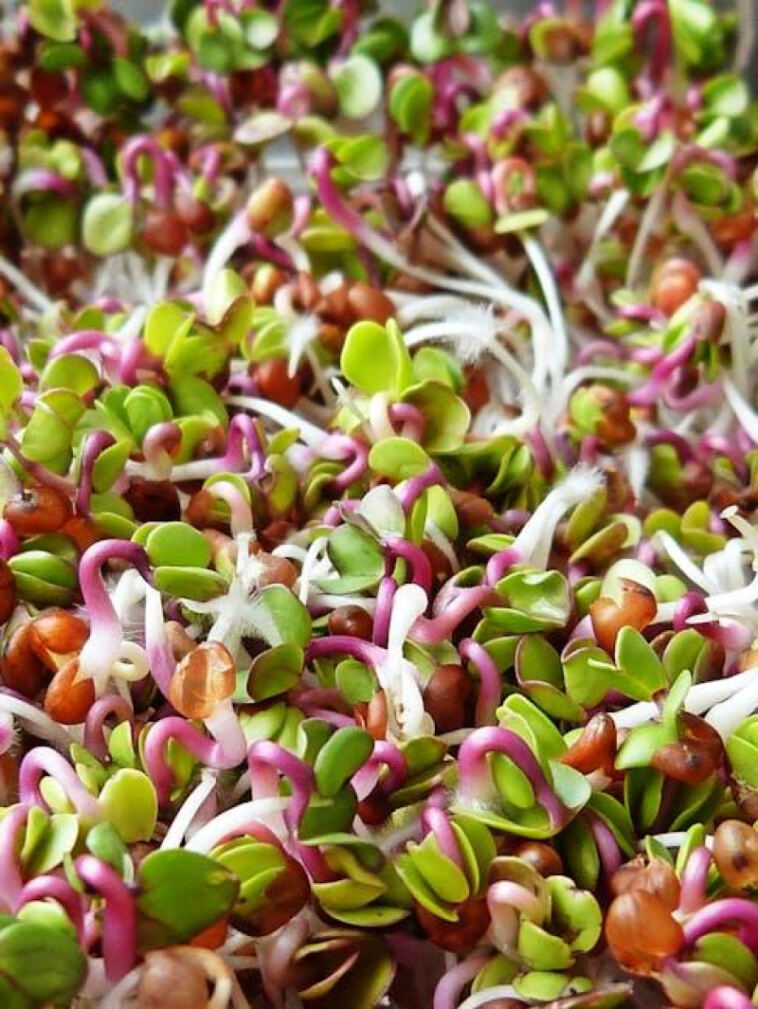- Like
- SHARE
- Digg
- Del
- Tumblr
- VKontakte
- Flattr
- Buffer
- Love This
- Save
- Odnoklassniki
- Meneame
- Blogger
- Amazon
- Yahoo Mail
- Gmail
- AOL
- Newsvine
- HackerNews
- Evernote
- MySpace
- Mail.ru
- Viadeo
- Line
- Comments
- Yummly
- SMS
- Viber
- Telegram
- JOIN
- Skype
- Facebook Messenger
- Kakao
- LiveJournal
- Yammer
- Edgar
- Fintel
- Mix
- Instapaper
- Copy Link
In the bustling world of cannabis farming, one vital element often overlooked is the health of the soil. Just as strong roots anchor a towering tree, fertile soil provides the foundation for thriving cannabis plants. In this article, we delve into the importance of cultivating vitality in soil health for cannabis farming, exploring the key practices and techniques to boost growth and yield. Join us on this journey to unlock the secrets of nurturing healthy soil for your cannabis crops.
Building Healthy Soil Ecosystems for Cannabis Growth
Healthy soil ecosystems are the foundation of successful cannabis farming, providing the essential nutrients and beneficial microorganisms necessary for robust plant growth. By cultivating vitality in the soil, farmers can optimize crop yields and quality while reducing the need for synthetic fertilizers and pesticides.
One key strategy for boosting soil health is to promote biodiversity within the ecosystem. This can be achieved by incorporating a diverse range of cover crops, companion plants, and beneficial insects into the growing environment. Diversity not only enhances nutrient cycling and pest control but also improves soil structure and water retention.
Furthermore, incorporating organic matter into the soil is essential for maintaining its fertility and structure. Compost, mulch, and cover crops can all help to increase the levels of organic matter, which in turn supports a thriving community of soil organisms. These organisms play a vital role in breaking down nutrients and making them available to the plants.
Developing a Regenerative Agriculture Approach
When it comes to cannabis farming, adopting a regenerative agriculture approach is essential for boosting soil health and promoting sustainability. By implementing practices that focus on restoring and enhancing the soil ecosystem, growers can cultivate vitality within their fields. Healthy soil not only supports robust plant growth but also plays a crucial role in sequestering carbon and enhancing biodiversity.
One key principle of regenerative agriculture is the promotion of soil regeneration through organic practices. By avoiding synthetic fertilizers and pesticides, growers can protect the natural balance of the soil microbiome and prevent harmful chemicals from leaching into the environment. Utilizing cover crops and crop rotation can further enhance soil structure and fertility, creating a thriving ecosystem that fosters plant health and resilience.
Implementing regenerative practices also involves building resilience to climate change and extreme weather events. By improving soil water retention and reducing erosion, growers can mitigate the impacts of droughts and floods on their crops. Additionally, promoting biodiversity through integrated pest management and habitat restoration can help create a more stable and sustainable farming system for the long term.
Utilizing Cover Crops and Compost for Nutrient-Rich Soil
When it comes to cultivating vitality in your cannabis farm, one of the essential practices is boosting soil health through the use of cover crops and compost. By incorporating these natural methods into your farming routine, you can ensure that your soil remains nutrient-rich and teeming with beneficial microorganisms.
Cover Crops:
- Help prevent erosion and weed growth
- Fix nitrogen into the soil
- Add organic matter to improve soil structure
- Attract beneficial insects
Compost:
- Provides essential nutrients for plant growth
- Improves soil structure and water retention
- Helps suppress soil-borne diseases
- Promotes the growth of beneficial soil microorganisms
Implementing Proper Irrigation and Drainage Techniques
Looking to maximize your cannabis farm’s productivity? is crucial for boosting soil health and ensuring optimal growth conditions for your plants. By cultivating vitality in your soil, you can enhance nutrient uptake, prevent waterlogging, and promote healthy root development.
One key strategy for improving soil health is to establish a well-designed irrigation system that delivers water efficiently to your cannabis crops. Utilizing drip irrigation or soaker hoses can help deliver water directly to the root zone, minimizing wastage and reducing the risk of disease. Additionally, incorporating mulching around plants can help retain moisture in the soil, reducing the frequency of watering and promoting overall soil health.
Proper drainage is equally important in maintaining soil health for cannabis farming. Ensuring water can properly drain away from the root zone helps prevent waterlogging and root rot. Implementing techniques such as raised beds or installing French drains can help improve drainage in your growing area, promoting healthy soil structure and optimal growing conditions for your cannabis plants.
Managing Soil pH Levels for Optimal Cannabis Growth
When it comes to cultivating vitality in your cannabis farm, one of the key factors to consider is managing soil pH levels. Maintaining the optimal pH range in your soil is crucial for ensuring that your plants have access to essential nutrients necessary for healthy growth.
Here are some tips for boosting soil health by managing pH levels:
- Test your soil regularly to monitor pH levels and make necessary adjustments.
- Add organic matter such as compost or manure to help buffer pH fluctuations.
- Consider using natural amendments like lime to raise pH or sulfur to lower pH as needed.
Maintaining the right pH range in your soil can:
- Improve nutrient uptake by your cannabis plants.
- Prevent nutrient deficiencies or toxicities that can hinder growth.
- Promote beneficial microbial activity in the soil for overall plant health.
Q&A
Q: Why is soil health important for cannabis farming?
A: Soil health is crucial for cannabis farming as it directly affects the quality and yield of the plants. Healthy soil provides essential nutrients and microbiology for strong growth and disease resistance.
Q: How can farmers improve soil health on their cannabis farms?
A: Farmers can improve soil health by practicing organic farming methods, rotating crops, adding organic amendments, and utilizing cover crops to prevent erosion and promote biodiversity.
Q: What are some common soil problems that cannabis farmers may face?
A: Common soil problems for cannabis farmers include nutrient deficiencies, compacted soil, poor drainage, and imbalances in pH levels. These issues can hinder plant growth and reduce yields.
Q: How can soil testing help cannabis farmers manage soil health?
A: Soil testing can help farmers determine nutrient levels, pH balance, and overall soil health. By regularly testing their soil, farmers can make informed decisions about fertilization and amendments to improve soil health.
Q: What are some sustainable practices that cannabis farmers can adopt to enhance soil health?
A: Some sustainable practices for enhancing soil health in cannabis farming include practicing crop rotation, implementing composting systems, reducing tillage, and using cover crops. These methods can improve soil fertility and structure over time.
In Conclusion
As we wrap up our exploration into cultivating vitality for cannabis farming, it’s clear that soil health is the cornerstone of success in this industry. By implementing sustainable practices such as cover cropping, composting, and crop rotation, farmers can ensure they are cultivating an environment where their plants can thrive. Remember, a healthy soil means healthy plants, and ultimately, a thriving cannabis farm. Here’s to cultivating vitality and reaping the rewards of a bountiful harvest. Stay tuned for more tips and tricks on how to boost soil health in your cannabis operation.


